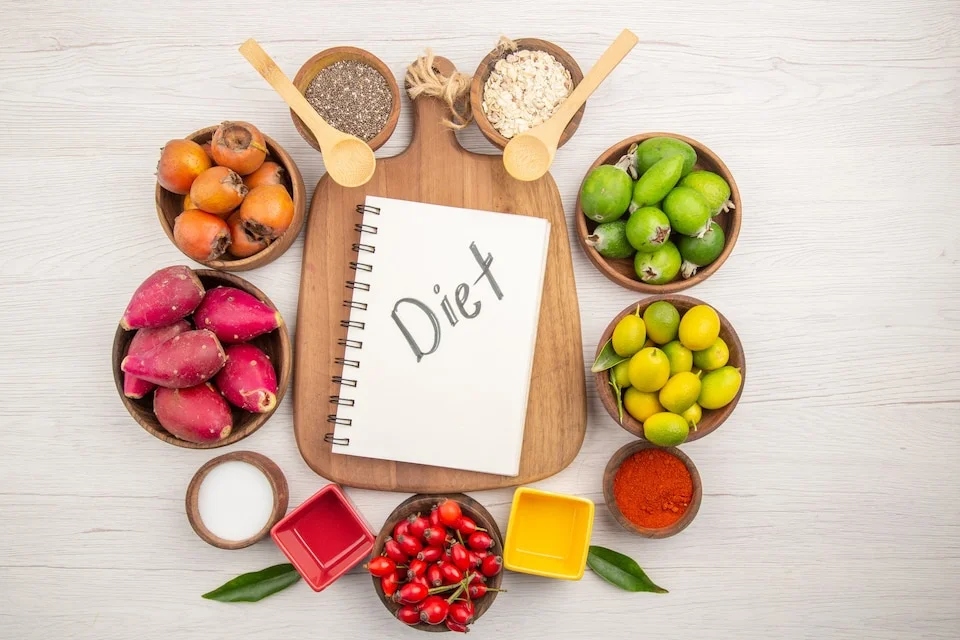Ayurveda highlights the importance of a balanced and healthy digestive system for overall well-being. Poor digestion can result in various health issues, including bloating, gas, constipation, and even more severe conditions like irritable bowel syndrome (IBS). This blog will delve into how Ayurveda can aid in improving digestion.
Read more : Top 5 Ayurvedic Tips For IBS Relief

Causes of Indigestion
Indigestion or dyspepsia is a common condition that affects people of all ages. Overeating, consuming spicy or fatty foods, eating too quickly, stress, and certain medications are the most common causes of indigestion. Symptoms of indigestion include discomfort in the upper abdomen, bloating, nausea, and heartburn.
Ayurveda provides a holistic approach to treating indigestion. Ayurveda believes that an imbalance in the digestive fire or Agni causes indigestion. Practitioners of Ayurveda believe that restoring the balance of Agni in the body can alleviate poor digestion. This can be attained through a combination of lifestyle and dietary changes.
Gut Health with Ayurvedic Diet
Ayurveda emphasizes the role of diet in maintaining good health. Each person has a unique constitution or Dosha, which determines their physical and mental characteristics. The Doshas are Vata, Pitta, and Kapha, each of which is associated with specific foods and dietary habits that can aid in maintaining a healthy digestive system.
Vata Dosha
People with a Vata constitution are prone to dry skin, constipation, and gas. To balance the Vata Dosha, it is advisable to consume warm, nourishing foods that are easy to digest. Recommended foods for Vata Dosha include cooked grains, cooked vegetables, warm soups, and stews. It is best to avoid cold, raw foods and drinks, caffeine, and alcohol.
Pitta Dosha
People with a Pitta constitution are prone to acid reflux, heartburn, and inflammation. To balance the Pitta Dosha, it is advisable to consume cooling and soothing foods that are easy to digest. Recommended foods for Pitta Dosha include sweet fruits, coconut water, cucumber, and mint. It is best to avoid spicy, sour, and salty foods, caffeine, and alcohol.
Kapha Dosha
People with a Kapha constitution are prone to sluggish digestion, bloating, and weight gain. To balance the Kapha Dosha, it is advisable to consume light, warm, and spicy foods that are easy to digest. Recommended foods for Kapha Dosha include cooked vegetables, lean proteins, and spices like ginger, black pepper, and cinnamon. It is best to avoid heavy, oily, and sweet foods, dairy, and cold drinks.
In addition to following a Dosha-specific diet, Ayurveda recommends the following dietary habits for improving digestion:
- Eat regularly and do not skip meals.
- Chew your food thoroughly to aid digestion.
- Drink warm water or herbal tea throughout the day.
- Avoid overeating and eating too quickly.
- Eat the largest meal at lunchtime and have a light dinner.
- Avoid eating heavy meals before bed.
Other Lifestyle Habits for Healthy Digestion
Apart from dietary changes, Ayurveda recommends the following lifestyle habits to maintain good gut health:
- Practice stress-reducing activities like yoga and meditation.
- Get regular exercise to aid digestion.
- Walk after meals to aid digestion.
- Avoid eating when stressed or anxious.
- Avoid eating late at night
At Raha Ayurveda, we specialize in holistic healing through personalized Ayurvedic treatment for IBS and other gut-related concerns. Our team of experienced Ayurvedic practitioners are on hand to guide you on your journey to holistic healing. Connect with us now!
Read more: The Most Effective Ayurvedic Remedies for Acidity Relief

Leave a Reply